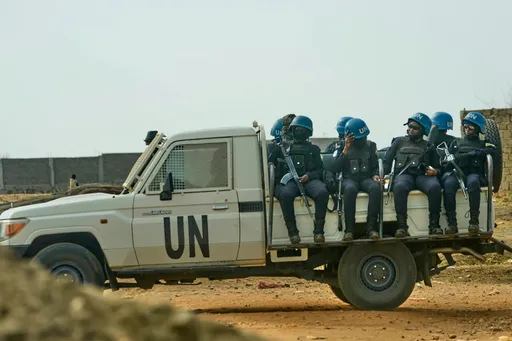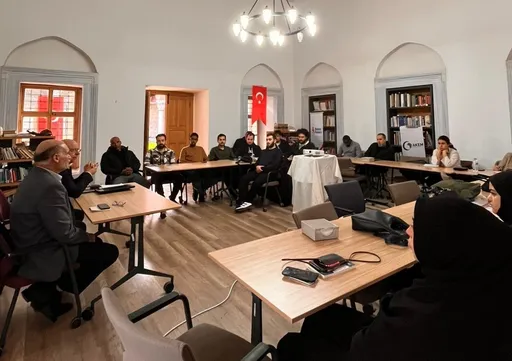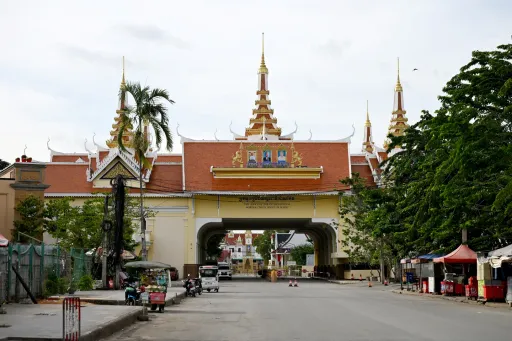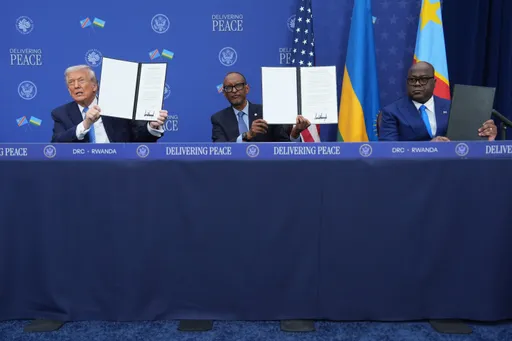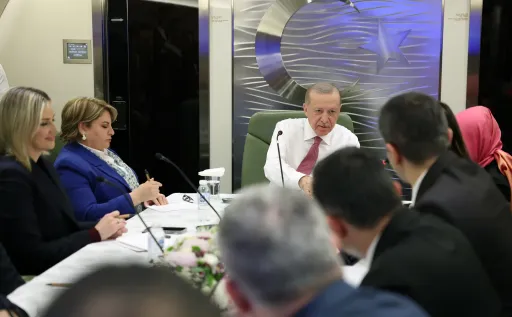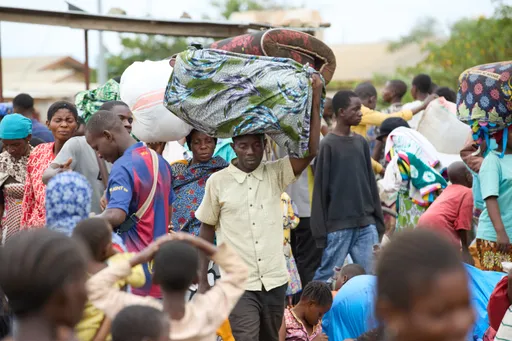By MazhunIdris
South Africa is moving the International Court of Justice against Israel over its military action in Gaza, saying this "amounts to genocide".
The Gaza conflict may be playing out in the faraway Middle East, but it matters to African countries that someone from the continent is speaking up for it.
South Africa's step shows why African voices are essential globally.
In New York City, where the United Nations is headquartered, Sierra Leone and Algeria have become the latest African countries to join the 15-strong UN Security Council as non-permanent members, taking the continent's representation to three.
Dr Tasiu Magaji, a political scientist at Nigeria's Bayero University, sees this as a significant development in world politics. He thinks Africa's stature within the Security Council will make the chamber more accountable.
"Non-permanent members with little or no vested interest in certain conflicts beyond global peace could ensure that the Security Council is accountable for its actions or inaction. They could shape global debates and advocate their priorities and perspectives without holding back," Dr Magaji tells TRT Afrika.
Infusion of new ideas
Sierra Leone and Algeria are among five new non-permanent members elected by the UN General Assembly for two-year terms beginning this month. Mozambique, the third African country in the group, have a seat at the table until the end of 2024.
Africa's increased representation at the UN's highest decision-making body comes with the burden of expectations.
"Sierra Leone and Algeria may call for greater transparency and consultations on peacekeeping, sanctions, or other measures taken by the Security Council," says Dr Magaji.
In pursuit of global peace and security, the increased diversity of the Security Council is expected to foster regional perspectives as different members with unique regional security challenges provide new insights to the organisation.
Sierra Leone has experience dealing with conflicts and peacebuilding efforts in West Africa, whilst Algeria has lived through and managed insecurity in North Africa, according to Dr Magaji.
Another area is promoting international dialogue as non-permanent members add to the level of cooperation among UN members, particularly on issues related to their respective regions.
Cooperation is a positive recipe for building consensus and facilitating effective decision-making on global and regional challenges. These include underrepresented issues, which may not necessarily be a priority for the permanent members.
Dr Magaji calls on Sierra Leone to raise concerns about the impact of climate change on security in West Africa. On the other hand, Algeria could potentially highlight the need for greater attention to exploitative migration and other regional challenges in North Africa.
Clamour for fairness
To be sure, even the majority decisions of the Security Council are liable to be overridden by the veto power of the Big Five — the US, UK, France, Russia, and China. This is why African countries have been demanding a permanent veto-wielding seat in the council.
"Putting more African countries into the Security Council alone does not necessarily increase the chances of a permanent seat for the continent. Securing a permanent seat is complex, requiring support from other UN member states," explains Dr Magaji.
African countries have initiated many resolutions and conventions. One is the 2005 Ezulwini Consensus, a pan-African campaign for the reform of the Security Council. Indeed, the African Union has pursued UN reform since the 1999 Sirte Declaration.
Even though 54 African countries constitute 28 per cent of the official UN membership count, the continent has not yet had a single permanent representation at the Security Council.
Among the ten nontenured members of the 15-member council, Algeria and Sierra Leone filled the seats vacated by Gabon and Ghana, whose two-year terms ended December 31 2023.
The ratio of African representation in the 15-member bloc now stands at 20 per cent.
Availing opportunities
"There is an ongoing UN reform process to modernise the organisation's structure and decision-making processes," says Dr Magaji. "This may provide an opportunity for Africa to make a stronger case for a permanent seat."
Analysts believe the UN needs to respect African voices more, which can only happen when the continent has a permanent position or two at the table, in line with its status in the comity of nations.
A minimum acknowledgement of the importance of Africa in global affairs should go beyond the flag of an African nation occasionally fluttering at the Security Council chamber. A significant affirmation should be a permanent seat, even if without veto power.
Indeed, the world is larger than five nations, and as Dr Magaji asserts, "the current constitution of the Security Council is at best lopsided, and at worst undemocratic".









